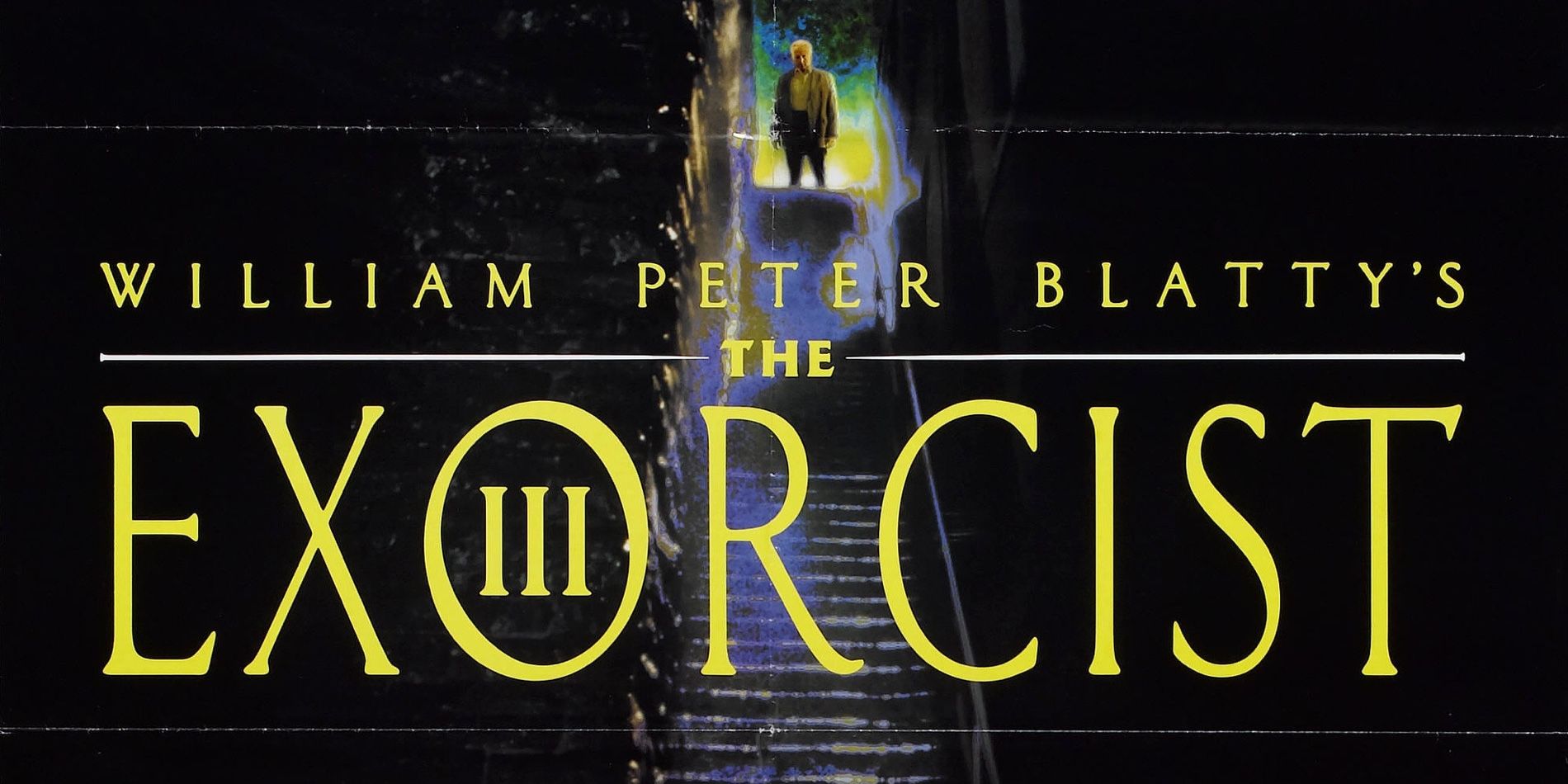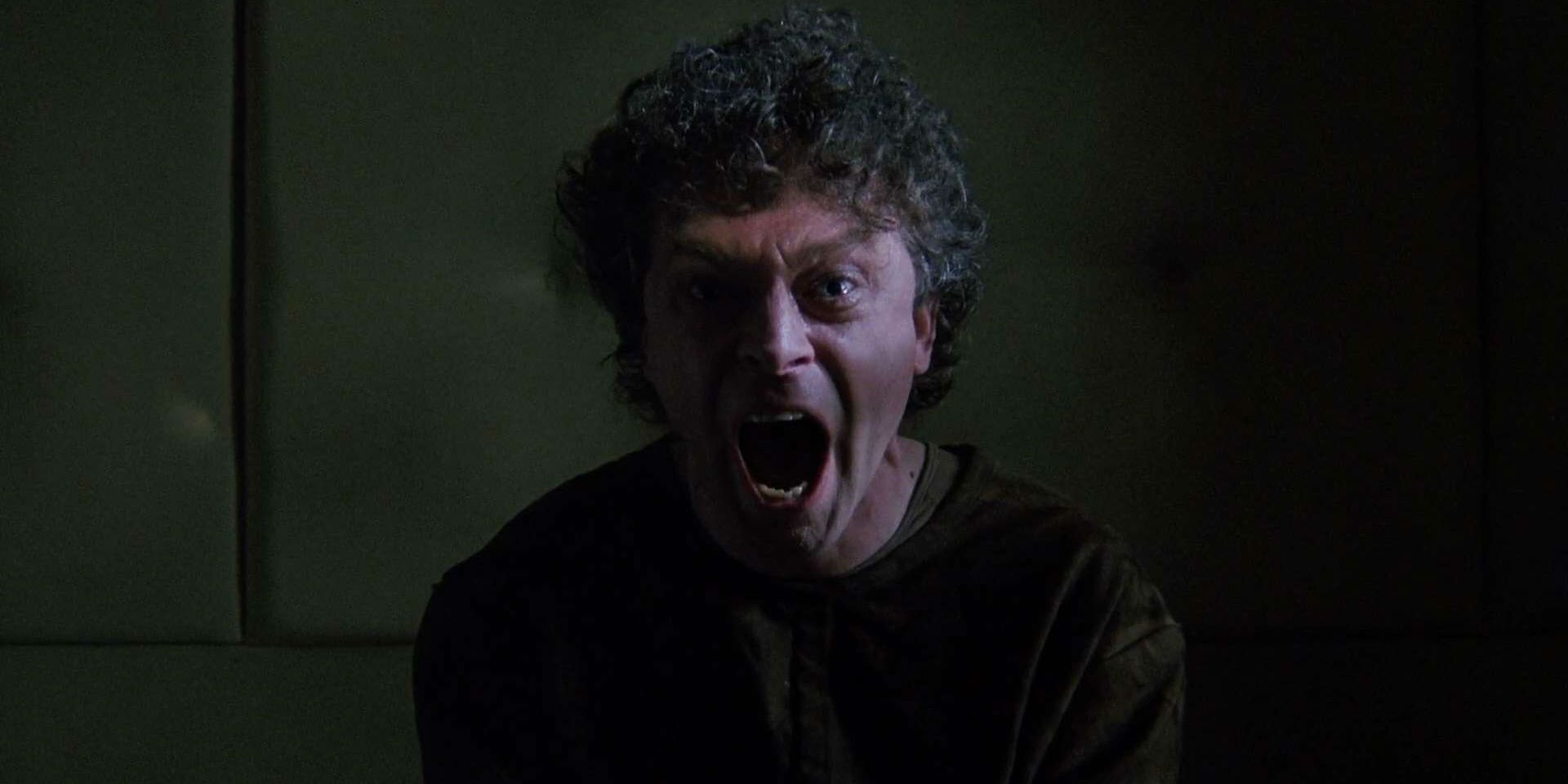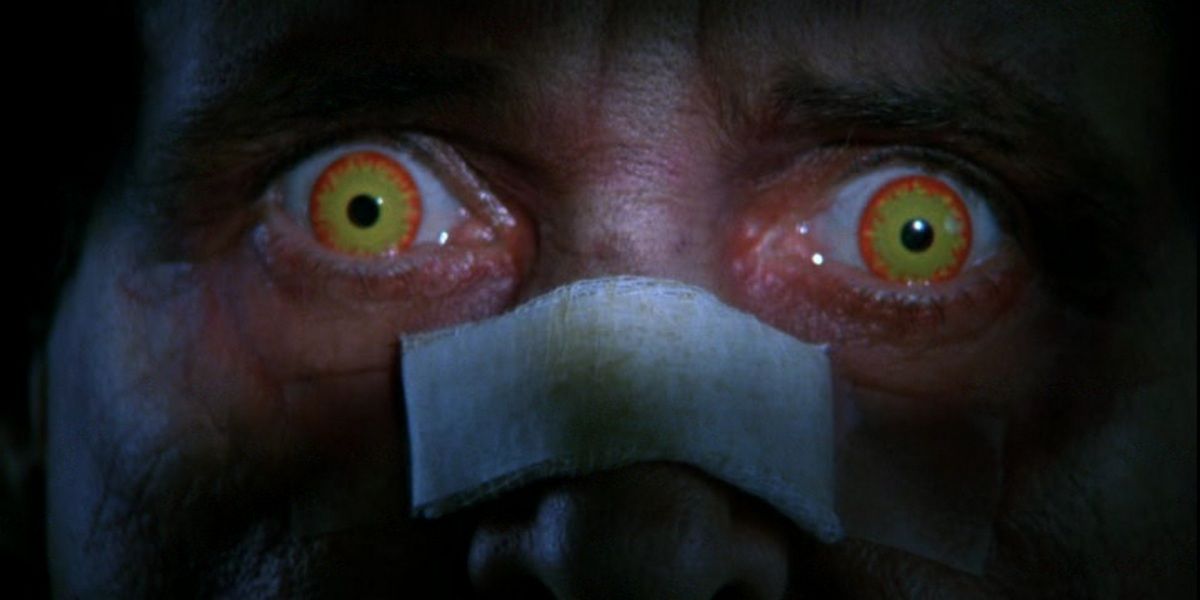The storyline takes a back seat to mood and effect, and the ending is weak, but if you like movies that scare you and/or creep you out, don't miss it.
With Exorcist: The Beginning due to hit theaters this week, I thought I would make the experience complete by seeing Exorcist III. Later on, I plan to see Exorcist II: The Heretic, but the comments I have heard about it have been unflattering, to say the least, so I'll take my time with that one.
The comments I had heard about Exorcist III were quite polarized. One person told me simply, "It sucked," while several film critics called it one of the scariest films ever made. After seeing the film, I would tend to agree with the film critics for the most part. William Peter Blatty, who adapted the screenplay from his novel, Legion, and directed the film, has a directing style that kind of reminds me of Steven Spielberg. He does an excellent job of achieving the mood or effect he wants, but the details of the story end up being overlooked as a result. The beginning is very melodramatic, almost to the point of being ridiculous. The only thing missing is a neon sign saying, "Something other-worldly is happening here." The scenes towards the end of the film feel out-of-place, almost like an afterthought. (The suits at Morgan Creek reportedly insisted on adding an exorcism scene, even though Blatty's original story had no such plot point.) But the rest of the movie, with only a few exceptions, is very well done.
This story is set in 1990, 15 years after Regan MacNeil was possessed by a demon. Lieutenant William Kinderman (played by George C. Scott) is investigating a series of brutal and bizarre murders whose victims all seem to be linked to the Regan MacNeil case. The specifics of the killings point squarely to the Gemini Killer. The good news is that the cops know who the Gemini Killer is; his name is James Venamun (played by Brad Dourif). The bad news is that James Venamun was executed years ago. Many of the specifics of the original Gemini killings were never publicized; in fact, some details were deliberately falsified in the media to avoid false confessions. But to Kinderman's amazement, this killer gets all the details right, even the ones that weren't revealed to the public. Is it possible that James Venamun wasn't really the Gemini Killer after all? (Movie cliché #744: "This killer knows details that only the real killer could know!")
Things really take a bizarre turn when Kinderman's friend, Father Dyer (played by Ed Flanders), is hospitalized with a mysterious illness. (Movie cliché #836: Sick people always cough, regardless of their affliction.) Soon after his admission to the hospital, Father Dyer is found murdered, with all the blood drained from his body and placed into several rows of drinking glasses so carefully that not even one drop was spilled. Kinderman finds enough evidence to point to one of the other patients in the hospital, but he is shocked to find out that it's a senile old woman who can't stand up without assistance. How can such a frail old lady commit such a brutal murder without spilling so much as a drop of blood?
It doesn't take Kinderman very long to conclude that something really weird is happening. His investigation quickly leads him to the high-security "disturbed ward" (conveniently located in that same hospital). I was almost expecting Hannibal Lecter to be in one of those cells, but no such luck. What Kinderman does find is a nameless, mysterious patient who seems to know quite a bit about the murders. As skeptical as Kinderman is, he starts to suspect that there is an "other-worldly" force taking over some of the patients at that hospital. The problem is, even if he's right, how can he stop more murders from taking place?
One scene that really frustrated me was early in the movie. The head from a statue of Christ was found at one of the murder scenes. A little later, Kinderman is getting on an elevator at the hospital, and he walks right past a statue of Christ with the head missing. He doesn't even notice it. A well-regarded cop with decades of experience doesn't notice something like that?! As soon as I saw that, I almost fell out of my chair.
The overall mood of the film is dark and creepy. In this regard, Blatty does an excellent job. He's guilty of a few "red herrings" that somewhat insult the viewer's intelligence, but they're not plentiful by any means. Blatty also seems to understand a concept that very few directors have ever been able to grasp. What makes a movie scary is not what you show; it's what you don't show. There is very little gore or violence (i.e. most murder victims are covered by a sheet so we can't see them), so your imagination is forced to run wild just when you wish it wouldn't. The musical score by Barry De Vorzon is very well done. It does what a musical score should -- it makes a scary film even scarier and puts an extra chill in your spine.
Overall, I found this film very effective for scares. I found it scarier than the original, but the original had a much better storyline. Some of the casting will confuse people who have seen the original (i.e. the actors who play Kinderman and Father Dyer are not the same people who played them in the original), but if you can get past that, it's reasonably entertaining. This is not the best in the Exorcist series; the original still earns that distinction. But if you want to see something genuinely scary, you can't go wrong with this one.



